
SIGN UP TO RECEIVE
15% OFF
IN YOUR NEXT TOUR
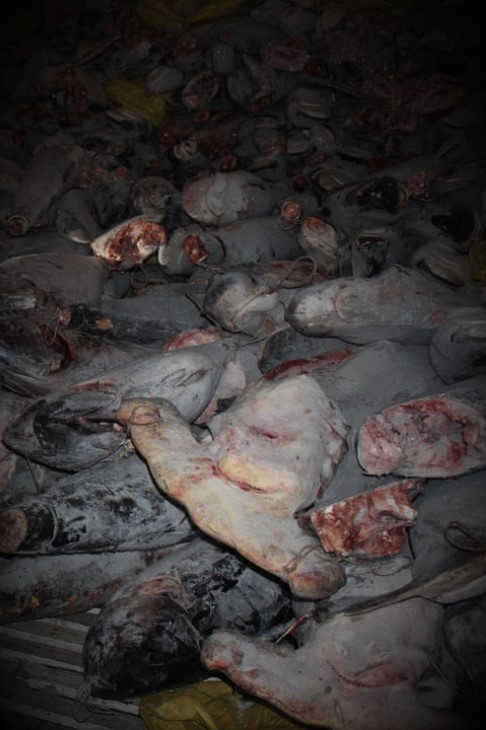
Chinese vessel caught in Galapagos with 6000 finned sharks
SCROLL DOWN TO READ
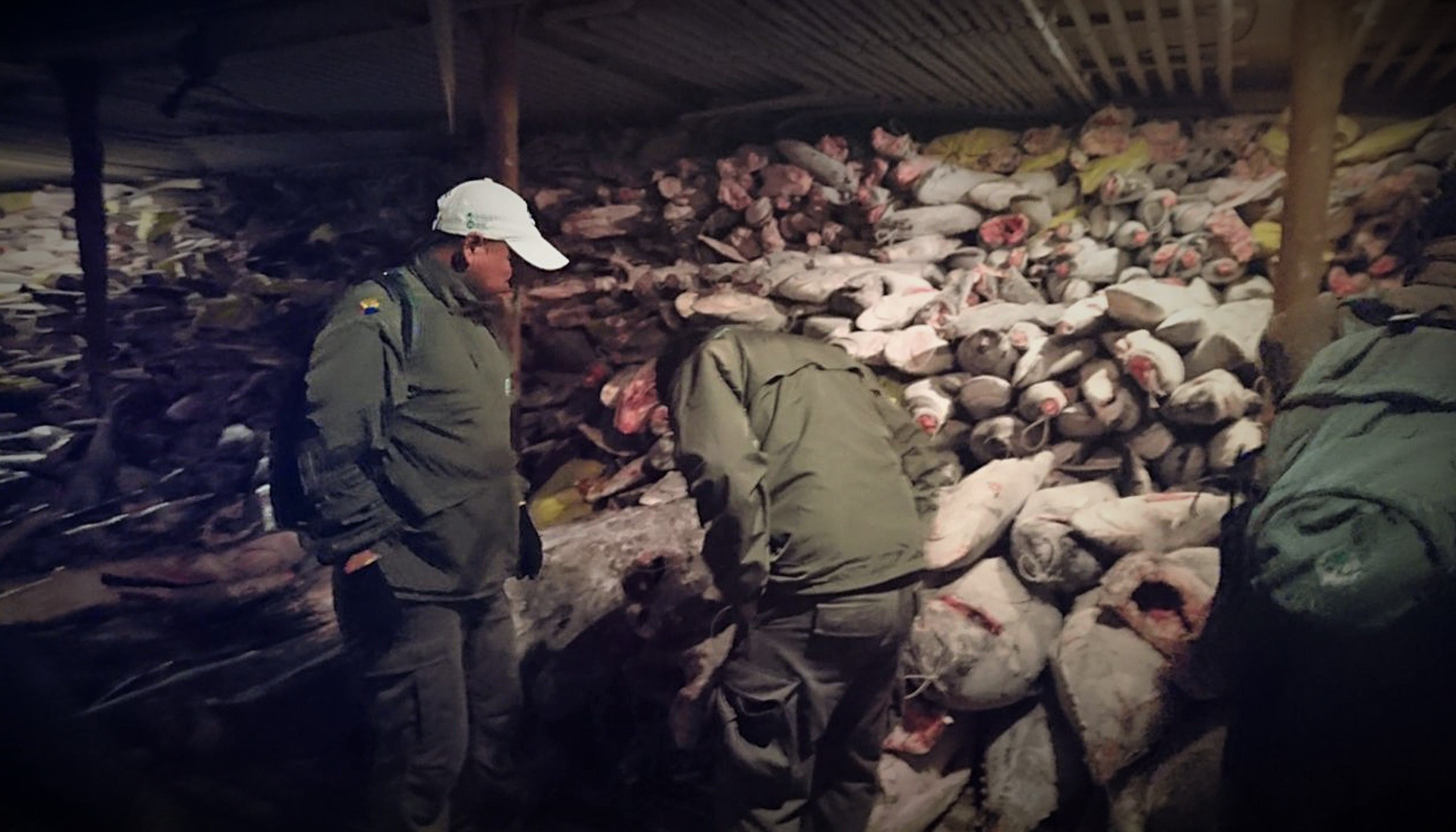
Chinese vessel caught in Galapagos with 6000 finned sharks
SCROLL DOWN TO READ
Chinese vessel caught in Galapagos with 6000 finned sharks
On 13 August 2017, a Chinese factory mother ship (Fu Yuan Yu Leng 999) navigating within the Galapagos Marine Reserve, was caught carrying 300 tons of fish; and subsequently, the vessel and the illegal fish catch were confiscated by the Ecuadorian Navy and the Galápagos National Park. The Galapagos Marine Reserve is sanctuary where absolutely no fishing is allowed and has the greatest abundance of sharks known in the world. It’s this that has made these waters a target of fishermen looking to supply Asian markets with shark fin and shark meat. Worldwide, shark populations are declining, with more than a quarter of sharks and related species considered to be threatened with extinction.
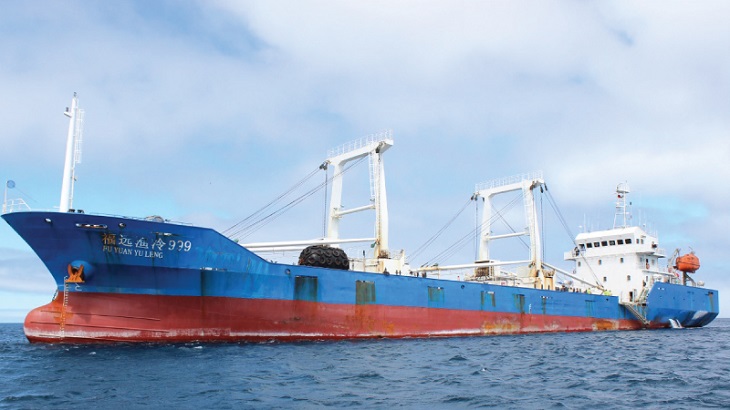
The illegal marine catch was composed by tuna fish and 6000 finned sharks that fall within categories of threatened species under the International Union for Conservation of Nature (IUCN); some of the endanger species are: the pelagic thresher shark, the silky shark and the popular scalloped hammerhead sharks. Similar to the shark species illegally harvested, some stocks of tuna, including the yellow fin tuna and big eye tuna, are considered as declining and categorized Vulnerable by the IUCN.
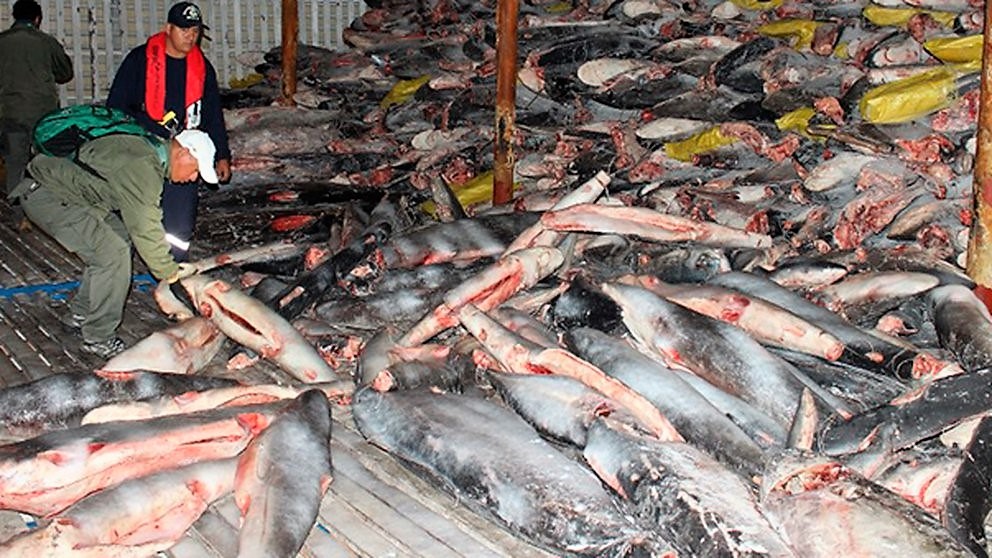
The crew of 20 have been arrested, and the Ecuadorian authorities are planning a full accounting of the ship’s inventory. The vessel is a “mothership,” or reefer, which collects fish from smaller fishing boats, allowing them to stay out at sea longer. It’s more than 300 feet long with six cargo bays, several of which were completely full, he says.
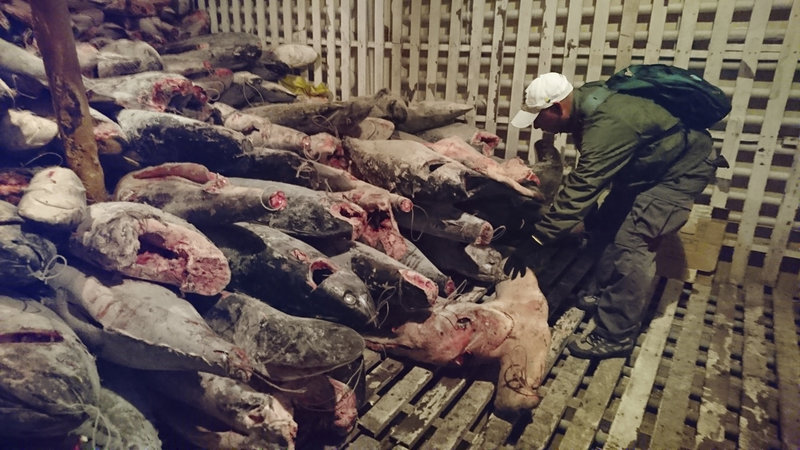
The encounter of the massive Chinese fleet around the Galapagos region is not an isolated event. China is currently fishing in international waters of numerous countries because this nation has already depleted local fish stocks and marine living resources from their own national waters. The fisheries subsidies implemented by the Chinese government to enhance the expansion of fishing vessels to harvest in distant water fisheries have increased the fishing effort of China’s fleet operation in many nations, including Asia, Africa, Central and South America.
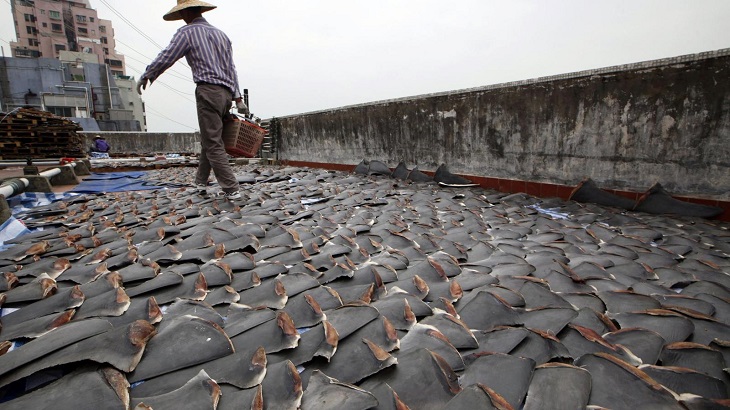
We must not forget that the Galapagos Marine Reserve is part of the Galapagos National Park and is one the largest worldwide, part of the planet's biosphere reserve and one of the most fragile natural parks; it takes its name from the giant tortoises that inhabit it and served as a laboratory to the English naturalist Charles Darwin to develop the theory on the evolution of species.
